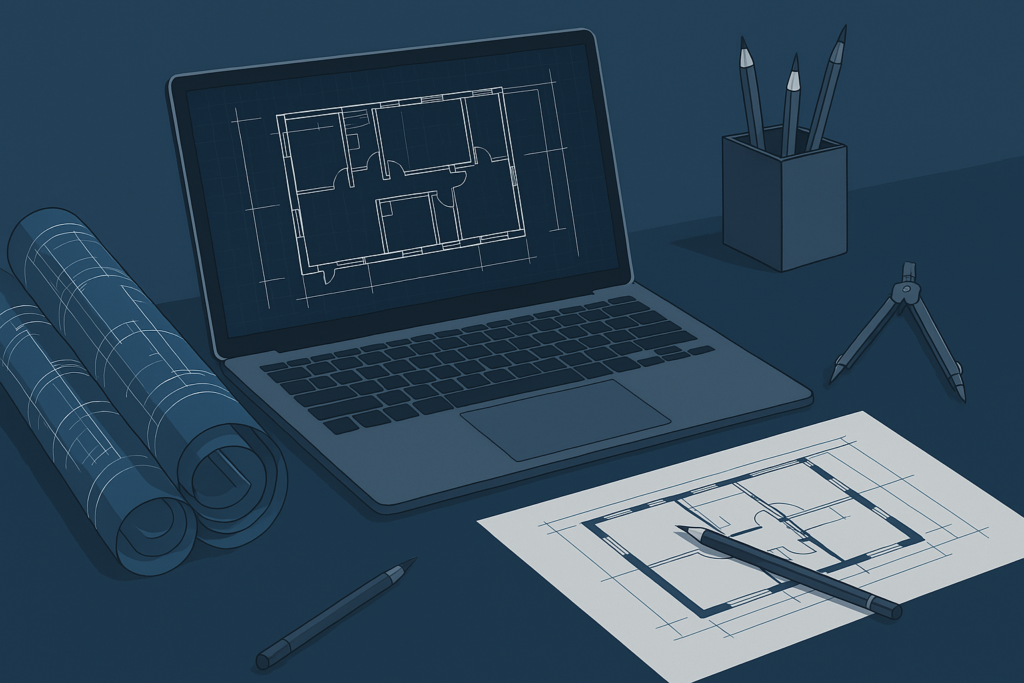The warehousing and logistics sector in India has witnessed massive transformation in recent years. Driven by the rise of e-commerce, global trade, and the government’s push for infrastructure development, Warehousing & Logistics Real Estate has emerged as one of the most dynamic segments of the property market.
Whether you’re a manufacturer, distributor, or third-party logistics (3PL) operator, choosing the right industrial or warehousing plot can determine how efficiently your business runs and scales. From location and connectivity to infrastructure readiness and sustainability, every element matters.
In this blog, we’ll explore the key trends shaping Warehousing & Logistics Real Estate today — and the features businesses prioritize when selecting a plot for long-term operations.
1. The Evolution of Warehousing & Logistics Real Estate in India
Over the past decade, India’s logistics and warehousing landscape has shifted from small, fragmented godowns to integrated, large-scale logistics parks. The introduction of GST streamlined interstate movement of goods, while the boom in online shopping created demand for urban and regional fulfillment centers.
Warehousing & Logistics Real Estate now serves not just as storage but as a strategic extension of the supply chain — helping companies reduce turnaround time and improve delivery efficiency.
Manesar, Bhiwadi, Sohna, and parts of Gurugram have emerged as key industrial corridors due to their proximity to highways and the National Capital Region (NCR). Projects like M3M Industrial Plots represent this new generation of modern industrial developments tailored for manufacturing and logistics enterprises.
2. Location & Connectivity: The Cornerstones of Modern Logistics
For logistics-driven operations, location remains the most critical factor. Businesses look for warehousing plots close to:
- National highways (like NH-48 and KMP Expressway)
- Freight corridors and ports
- Rail connectivity for bulk goods
- Urban centers for last-mile delivery
A plot located strategically between industrial and consumer hubs can save hours of transportation time daily. This directly reduces logistics costs, improves service reliability, and helps meet same-day or next-day delivery expectations.
That’s why areas like Manesar, which connect Delhi, Gurugram, and Jaipur seamlessly, have become ideal destinations for Warehousing & Logistics Real Estate investments.
3. Infrastructure Readiness & Utilities: The Backbone of Operations
Beyond connectivity, operational efficiency depends heavily on the availability of critical infrastructure. Businesses look for:
- Wide internal roads for truck movement
- 24×7 power and water supply
- Sewage treatment plants (STPs)
- Stormwater drainage systems
- Fire safety systems and hydrants
- Wi-Fi or fiber connectivity for digital logistics tracking
New-age projects like M3M Industrial Plots Sector 9 Manesar focus on these essentials, ensuring businesses can set up and operate immediately without worrying about basic utilities.
Infrastructure readiness helps reduce setup costs, shortens the project commissioning timeline, and boosts operational uptime.
4. Flexible Plot Sizes & Customization Options
In modern Warehousing & Logistics Real Estate, flexibility is key. Companies prefer developers who allow customizations in:
- Plot size and layout
- Entry and exit design for truck access
- Provision for multi-level storage
- Loading/unloading zones
- Office space integration
Modular layouts help businesses expand or reconfigure operations based on demand. With rapid automation, businesses also require design flexibility for robotics, conveyor systems, and automated sorting facilities.
5. Sustainability & Green Logistics Parks
Sustainability has moved from being a buzzword to a necessity. Businesses increasingly prefer eco-friendly warehousing and industrial plots with:
- Energy-efficient building materials
- Solar power panels and green roofs
- Rainwater harvesting systems
- Waste segregation and recycling units
- EV charging stations
Green logistics parks not only reduce environmental impact but also lower operational costs through reduced energy consumption. Additionally, they improve brand reputation, especially for global clients with ESG commitments.
6. Security & Compliance Infrastructure
Safety is another critical consideration. Plots within gated industrial communities offer:
- 24/7 CCTV surveillance
- Controlled access points
- Firefighting systems
- Compliance with industrial and environmental norms
Such features give businesses peace of mind and ensure smooth approvals from local authorities.
Developers like M3M and others in the NCR region are integrating smart security solutions into their Warehousing & Logistics Real Estate projects, blending safety with modern technology.
7. Proximity to Skilled Workforce & Support Ecosystem
Businesses thrive where talent is accessible. Industrial plots near residential areas or cities ensure that a skilled workforce is available for:
- Operations and warehouse management
- Technical maintenance
- Transportation and logistics roles
Proximity to training institutes, technical colleges, and service providers (repair shops, packaging suppliers, etc.) further enhances operational efficiency.
Manesar’s advantage lies in its closeness to Gurugram — offering a balance between affordability and workforce availability.
8. Technology Integration: Smart Warehousing is the Future
Technology now defines the efficiency of Warehousing & Logistics Real Estate. Businesses are adopting:
- IoT sensors for temperature and humidity control
- RFID tracking for real-time inventory visibility
- AI-driven warehouse management systems (WMS)
- Drones for internal stock audits
- Automated loading docks
Plots designed with digital infrastructure provisions ensure easy tech integration — an advantage for future scalability and automation.
9. Cost Efficiency & Long-Term ROI
While upfront land cost is important, forward-thinking businesses calculate total cost of ownership (TCO). A plot that offers better infrastructure, compliance readiness, and lower maintenance costs provides higher ROI over time.
In this regard, emerging industrial hubs like Manesar offer value by combining affordability with connectivity. Many enterprises prefer investing in Warehousing & Logistics Real Estate here to benefit from long-term appreciation and lower operational costs.
10. Government Policies & Incentives Boosting Industrial Growth
Government initiatives such as:
- Make in India
- National Logistics Policy (NLP)
- PM Gati Shakti Yojana
- Delhi-Mumbai Industrial Corridor (DMIC)
…have accelerated infrastructure investments and policy reforms. These policies promote industrialization, ease of doing business, and improved logistics efficiency — creating a strong foundation for Warehousing & Logistics Real Estate developers and businesses alike.
11. Emerging Hubs for Warehousing & Logistics Real Estate
The NCR region — particularly Manesar, Sohna, and Bhiwadi — is evolving into a logistics powerhouse due to its strategic location on NH-48 and proximity to Delhi airport.
Modern developments such as M3M Industrial Plots cater specifically to logistics, manufacturing, and warehousing companies seeking well-planned industrial plots with connectivity advantages, 24×7 utilities, and strong developer reputation.
For businesses expanding their footprint in Warehousing & Logistics Real Estate, these hubs provide the perfect blend of affordability, infrastructure, and accessibility.
12. The Role of Real Estate Platforms in Industrial Growth
Finding the right industrial plot is easier today thanks to online platforms specializing in commercial and industrial assets.
Reputed websites dealing in Real Estate in India help investors and business owners explore verified projects, compare features, and make informed decisions based on location, price, and developer background.
These digital tools have made industrial real estate discovery faster and more transparent, saving businesses weeks of manual search and documentation hassle.
13. The Future of Warehousing & Logistics Real Estate
The next phase of Warehousing & Logistics Real Estate will be shaped by:
- Expansion of 3PL and e-commerce logistics networks
- Demand for temperature-controlled warehousing (for food and pharma)
- Integration of AI-driven warehouse management
- Development of mega logistics parks under DMIC and NLP
- Growing focus on sustainability and automation
Businesses choosing plots today must evaluate long-term adaptability — selecting spaces that can evolve with emerging technologies and policy landscapes.
14. Key Takeaways for Businesses Selecting a Plot
When choosing an industrial plot for warehousing or logistics use, consider:
- Connectivity: Close to highways and freight corridors.
- Infrastructure: Roads, power, drainage, fire safety, telecom.
- Scalability: Flexible plot sizes and design customization.
- Compliance: Pre-approved, RERA-registered, and environmentally compliant.
- Sustainability: Solar, rainwater harvesting, and waste management systems.
- Technology-readiness: IoT and automation support.
- Developer reputation: Choose established players for reliability and after-sale support.
The right location and design can make your supply chain leaner, greener, and more profitable.
Also Read:- How SPJ Vedatam Brings Entertainment and Business Under One Roof
Conclusion
As businesses push for efficiency and speed, Warehousing & Logistics Real Estate has evolved into a strategic enabler rather than just a cost center.
Modern industrial developments like M3M Industrial Plots Sector 9 Manesar Gurgaon exemplify the future of this segment — offering location advantages, robust infrastructure, and sustainability in one package. Combined with a growing ecosystem and government policy support, India’s logistics real estate market is poised for long-term growth and innovation.
For enterprises planning expansion, now is the perfect time to evaluate the latest Warehousing & Logistics Real Estate options that align with your operational goals and future scalability.



